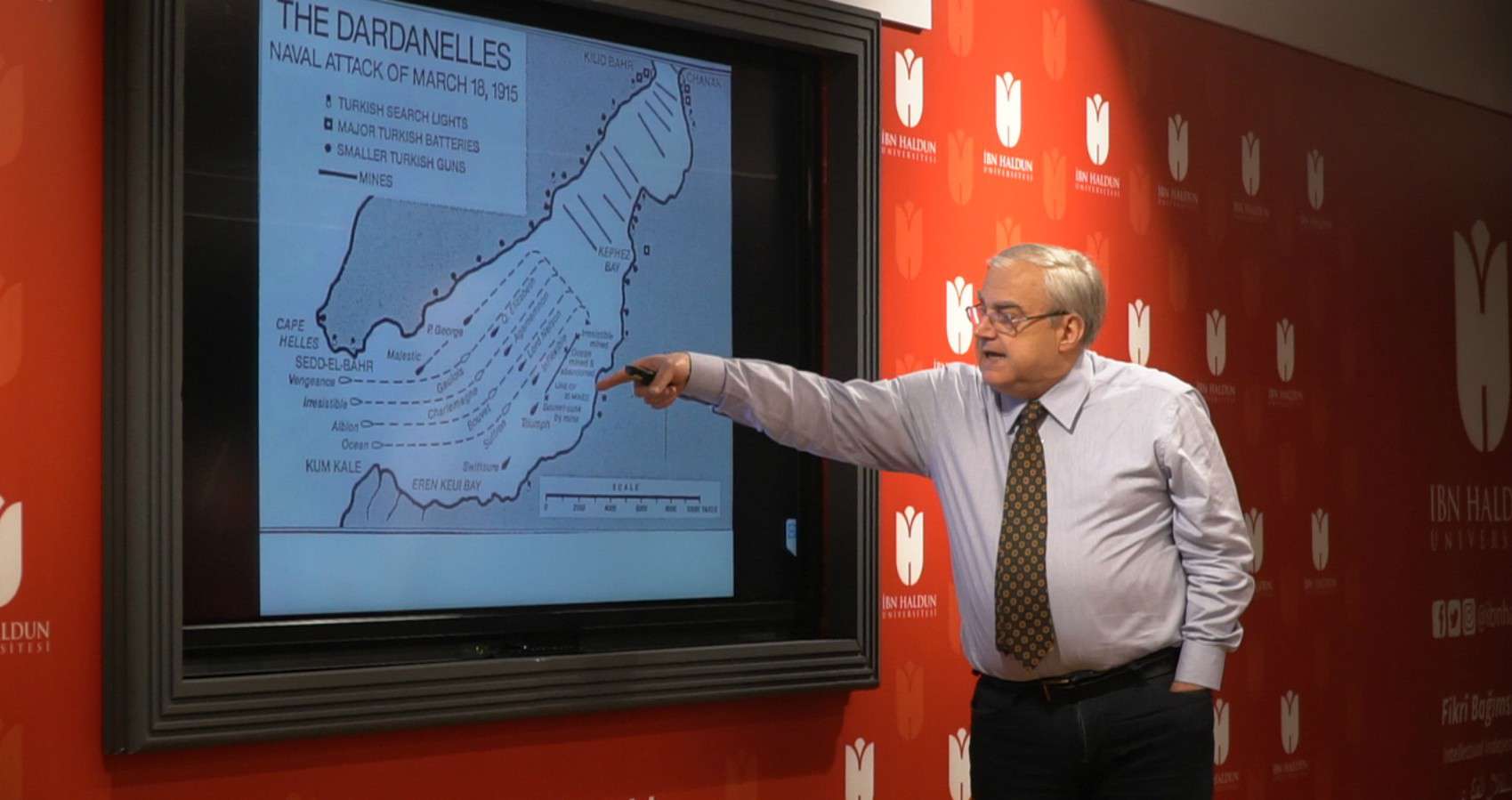


Professor Halil Berktay, the Head of History Department at Ibn Haldun University said, Gallipoli is the one and the only event that stands significantly outside the national holidays of the Turkish Republic that mostly revolves around Kemalist revolution which obliterated most important events of the Turkish history before 19th may 1919 on which Mustafa Kemal landed at Samsun to launch the National Struggle. Speaking at a panel in Ibn Haldun University marking the 103rd anniversary of the Gallipoli Victory Prof. Berktay said, "Somehow Gallipoli has lived and grown really big. From other and much more officially celebrations, I would risk saying that Gallipoli creates more spontaneous emotion in Turkish society than for example 30th August 1922 , which is official Victory Day concluding the national struggle." Professor Berktay emphasized that he would adress the reasons for that. Prof. Berktay mentioned that Gallipoli Campain is the generic name of a nine and a half months stretch campaign in 1915, which comprises two stages; the naval attempt by the British and French combined fleets to force a passage through the Dardanelles to the Marmara Sea and beyond that to Istanbul and after failing to do so through purely naval means, a land attemp which started very early in the morning on the 25th April at two crucial locations in the Gallipoli Peninsula. After ten months of very bloody fighting, the land attempt is also repulsed and the British, the French and the Anzac forces evacuate the Gallipoli Peninsula on 18th-19th January 1916.
According to Professor Berktay it is very crucial to know why the British war cabinet of the World War I decided to launch an offensive against Dardanelles and Gallipoli Peninsula and subsequently dragged the French into it to really understand the importance of Gallipoli Campaign. Professor Berktay said: "In the first half year of World War I, what had happened was, the German armies first attacked on the Western front, in accordance with a plan, prepared long in advance. The idea was to overrun France, capture Paris, and breakdown the French resistence within 6 weeks. This simply did not happen. The Germans did not succeed in encircling and destroying the main French field armies, which managed to withdraw beyond the German encirclement plan, and at the battle of Marne, they stopped the advance of the German armies. After that everybody dug deep trenches and got into them, and mobile warfare came to an end. Than came an era of four years of extremely bloody attritional French warfare began." According to Professor Berktay, Gallipoli campaign started in these circumstances. First came the naval campaign and than the land campaign along with naval which lasted in the withdrawal of the British, French and Anzac forces.
According to Professor Halil Berktay, there are six or seven main points about the importance of the Gallipoli campaign. Professor Berktay said Gallipoli is still by far the biggest campaign and it is the single biggest military campaign not just in Modern Turkish history but possibly in all Ottoman history. Professor Berktay argued that the death toll in the whole campaign is 85,000 contrary to the number known in popular culture which is 250,000 martyrs. He said 55,000 soldiers got martryed on the battle field while actually fighting and another around 25,000-30,000 died due to sicknesses like typus and dysentary because of the poor hygienic circumstances and inadequate medical conditions. According to Professor Berktay, the casualies during the Turkish struggle which lasted over three years was around one sixth of the Gallipoli campagin. "Total dead count in Turkish struggle was 9167 and that number is around one ninth of the number of soldiers got martyred during Gallipoli campaign. These figures gives a sense of how much the immensity of Gallipoli in terms of the Ottoman Turkish experience and that was happening in not three years but only around eight months." he added. Professor Berktay emphasized that Gallipoli is the one that stands in Turkish national memory as the epitome of defending the father land, more than any other front or campaign during the World War I. He said, Gallipoli was the last campaign of the Ottoman Empire and that was the motive behind the fight leading to new Turkey. Professor Berktay also said that without the degree of self confidence and experience gained through the victory at Gallipoli, it may well be impossible to launch a "do or die" kind of adventure during the National struggle and the War of Independence.